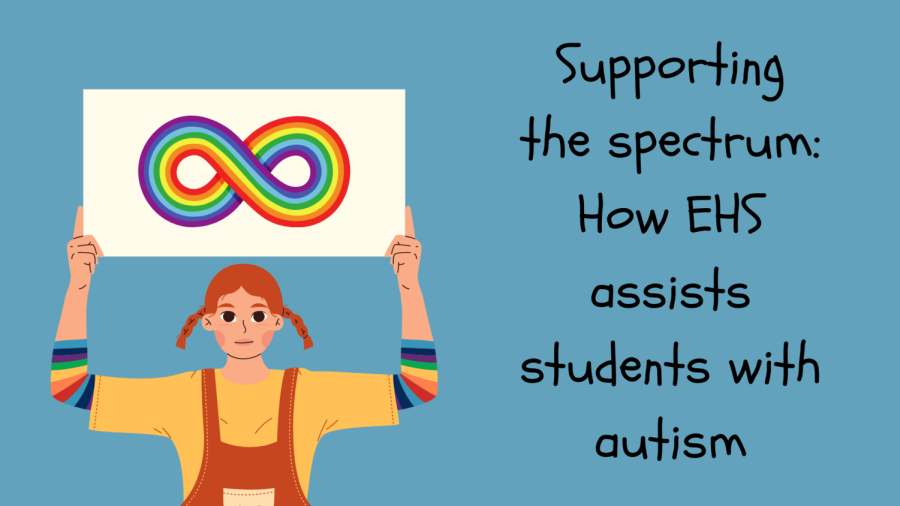Co-existing conditions repressed by autism
May 25, 2022
This previously ran in our April 2022 print issue.
A comorbidity is a medical term that is used when more than one condition or disease exists within the body at one given time. Like many other diseases, Autism Spectrum Disorder (ASD) has several conditions that are commonly comorbid.
It is important for doctors to understand comorbid conditions as they may be affecting one another. However, they are different from complications. A complication is a direct result of the other disease or condition that could stem from a procedure or treatment or could be developed from the disease. On the other hand, a comorbidity is a completely separate disease or condition that just happens to be occurring at the same time as the primary health concern.
Comorbidities can be difficult to diagnose in some people with ASD, especially if they have a hard time communicating and describing symptoms that they are potentially experiencing. They can either last throughout the person’s lifetime or may fluctuate based on the life stage that they are in. There have been multiple studies that have shockingly proven that people with autism typically have a shorter lifespan. This is not due to the ASD diagnosis but to the comorbid conditions or diseases that can come along with it.
One of the most common comorbidities with autism is anxiety disorders. These disorders consist of generalized anxiety disorder, separation anxiety, social anxiety, phobias and fears, and obsessive-compulsive disorder (OCD). They can cause impairments in sleep and appetite as well as increased irritability, repetitive movements, tantrums, and self-injurious behavior. These symptoms can also be indicative of ASD which can make the diagnosis more difficult or confusing.
Emmaus Autistic Support teacher Lynn Gitski witnesses some of the effects of comorbidities in her students, which can influence their placement in an autistic support program.
“There are other things such as anxiety…that could kind of help them fall into that placement [in the Autistic Support program],” Gitski said.
Another common comorbidity is depression. According to the Center for Disease Control (CDC), compared to the 7% of the general population, depression affects 27% of people with autism. Some of the most common symptoms of depression include low mood, weight and appetite changes, sleep disturbance, thoughts of suicide, and self-injury. Many of these also overlap with autism symptoms which can make it difficult to diagnose.
Epilepsy is another condition that frequently co-occurs with autism. According to the Children’s Hospital of Philadelphia (CHOP), “Epilepsy affects a remarkable 25% to 40% of patients with ASD, compared to 2% to 3% of the general population, and seizures are a major area of concern for families.” There can be an increased risk of epilepsy if the person with ASD has an underlying neurological disorder, family history of epilepsy, cognitive disorder, or intellectual disability.
Neurological disorders such as epilepsy, Tourette’s, and intellectual disability are “frequently comorbid,” with ASD, according to a study by Frontiers in Neuroscience. EHS junior Lemons has been diagnosed with ASD and Tourette’s, the latter of which they feel they receive less support for.
“So, in terms of my autism, I’m given a lot of support where I need it, but for other things that bother me, like neurologically less common things [such as] Tourette’s, I sort of get like, deal with it.” Lemons said. They stated that in their Family Consumer Science class, other students would have to “take needles out of [their hands] whenever [their] tics got particularly bad.”
When considering Individualized Education Programs (IEP) for students with autism, it’s important to take into account the many conditions that can be comorbid with ASD and how it may affect a student’s particular needs or skillset. The list is expansive, there are a plethora of other conditions that may also occur with the diagnosis of ASD. These conditions can become apparent at any stage of development within a person. They can have a large impact on the way that their symptoms of Autism present themselves and can make support and therapies different from other people with ASD.
It is very important that people diagnosed with ASD are tested and treated separately for comorbidities in order for them to receive the best care possible.













